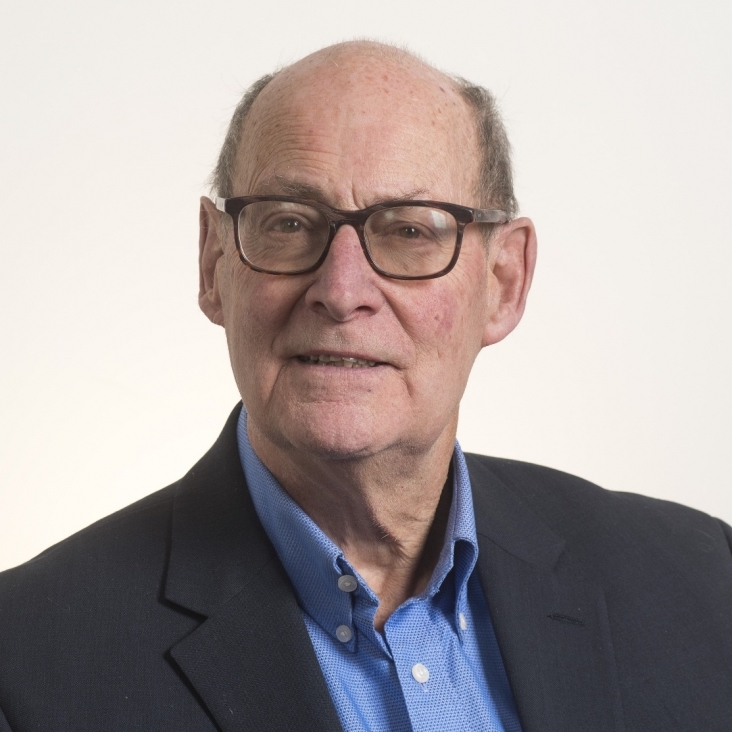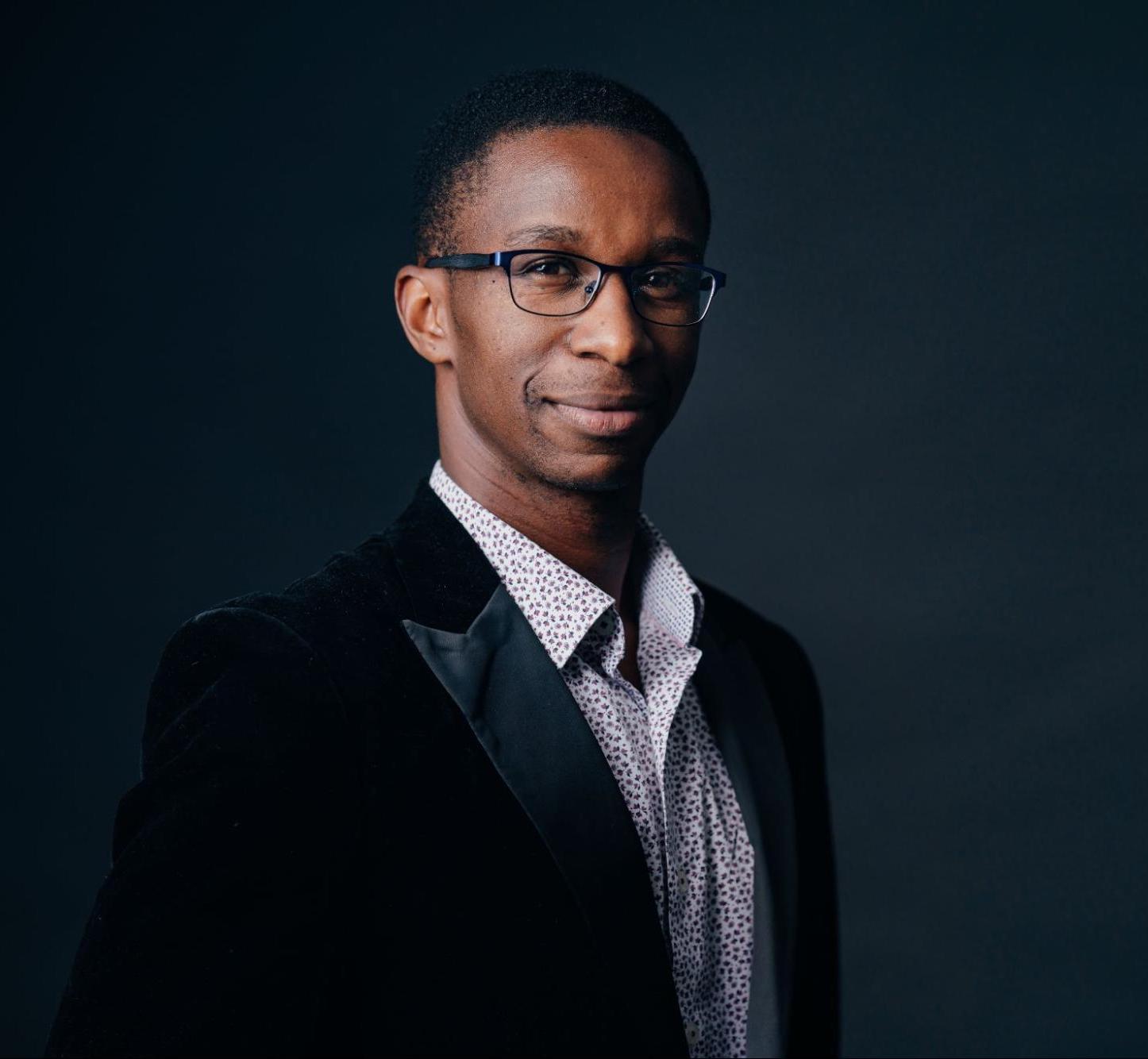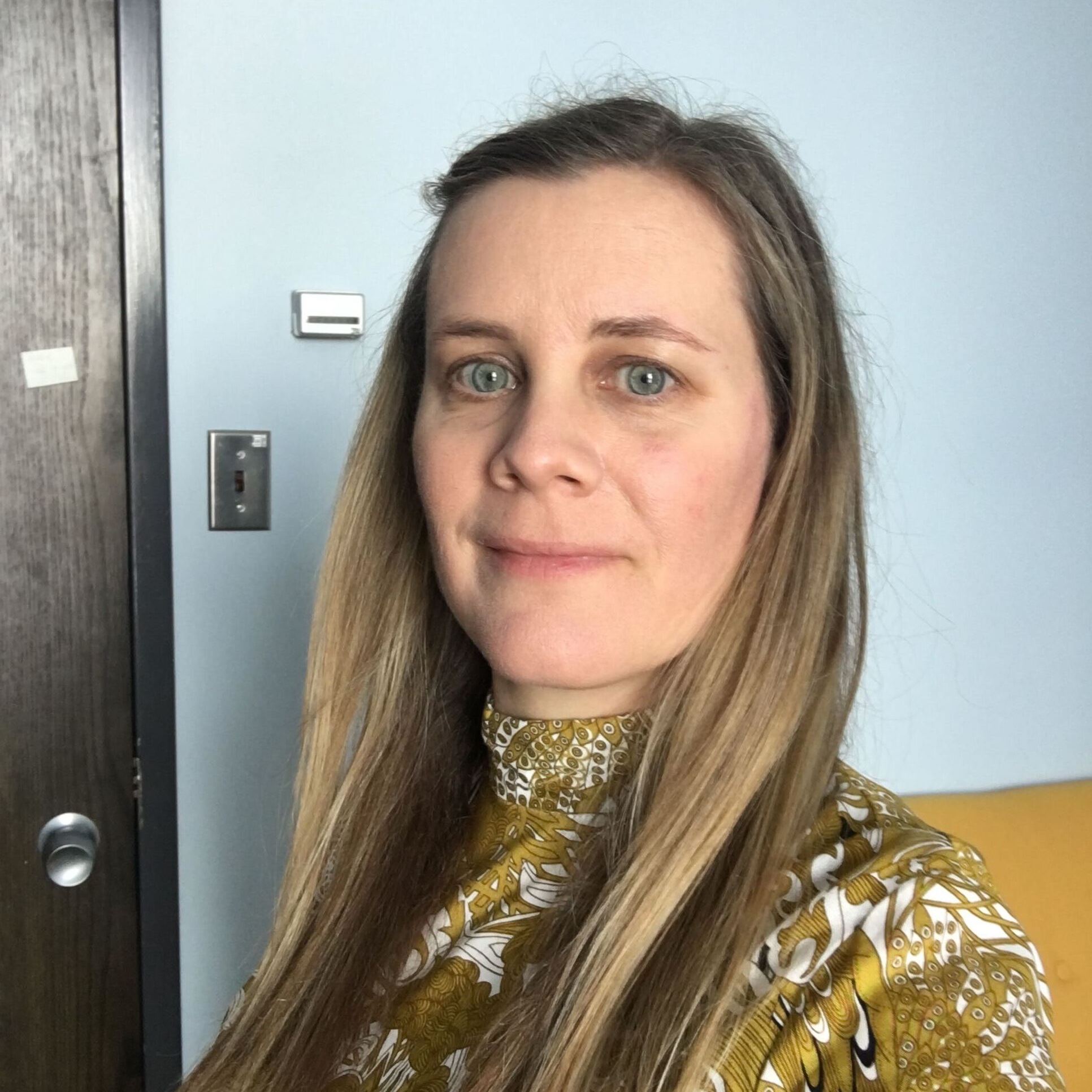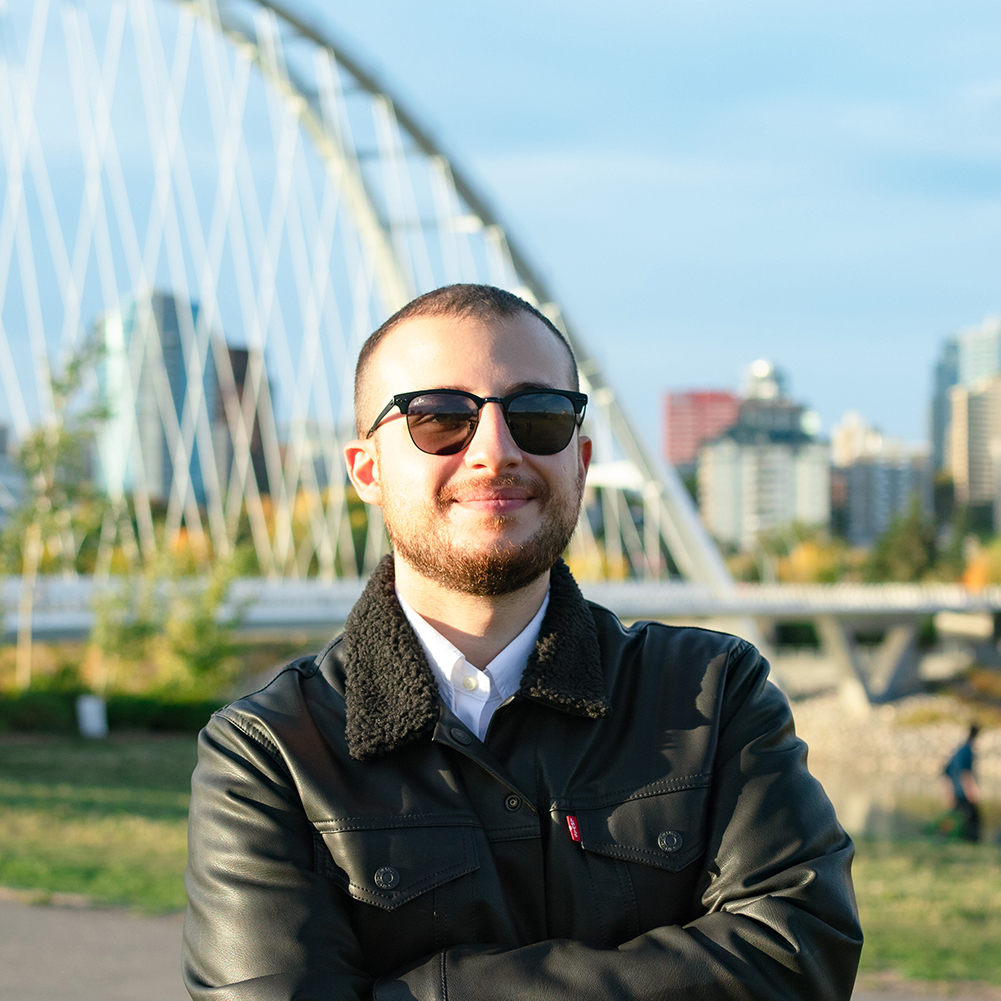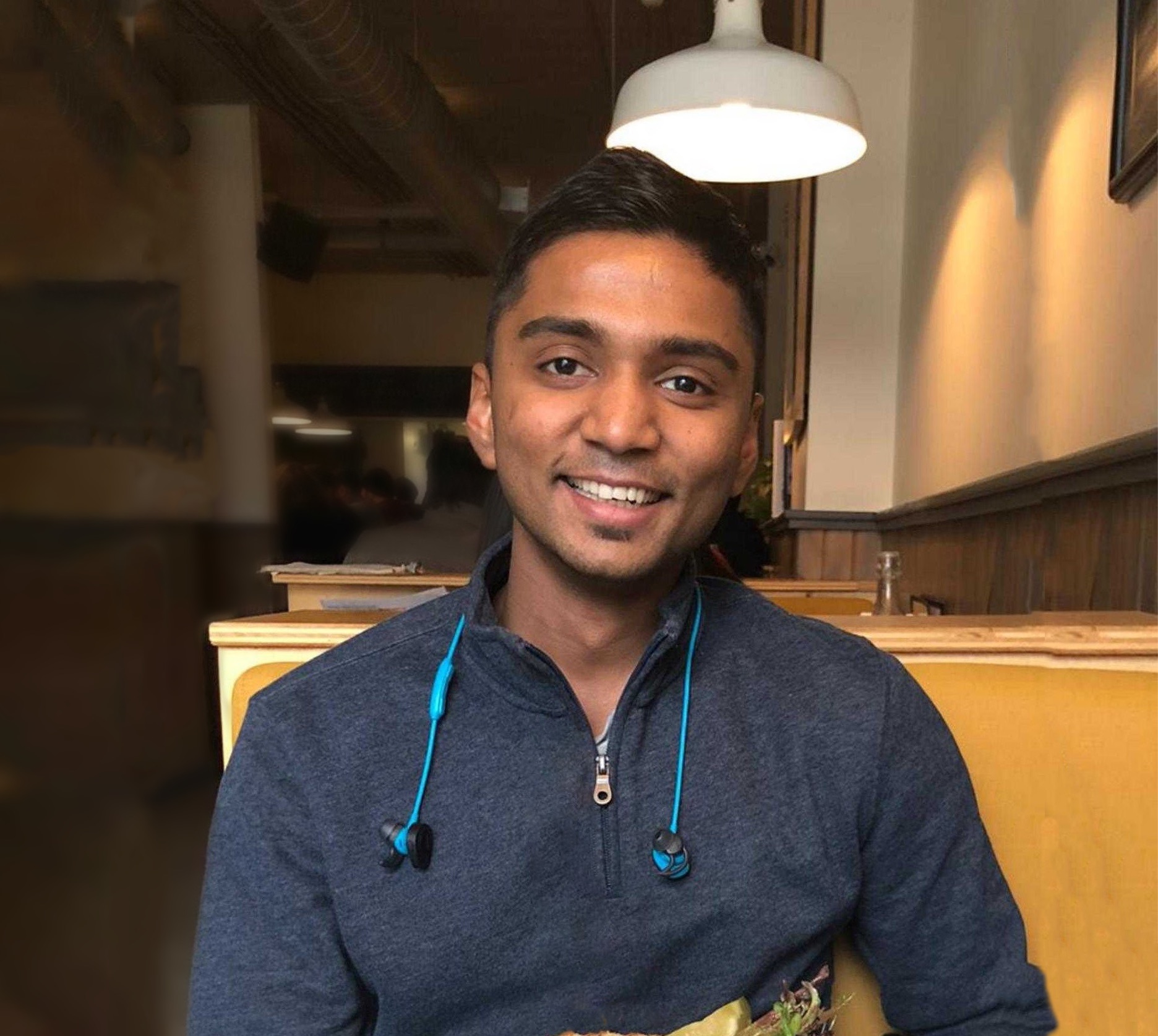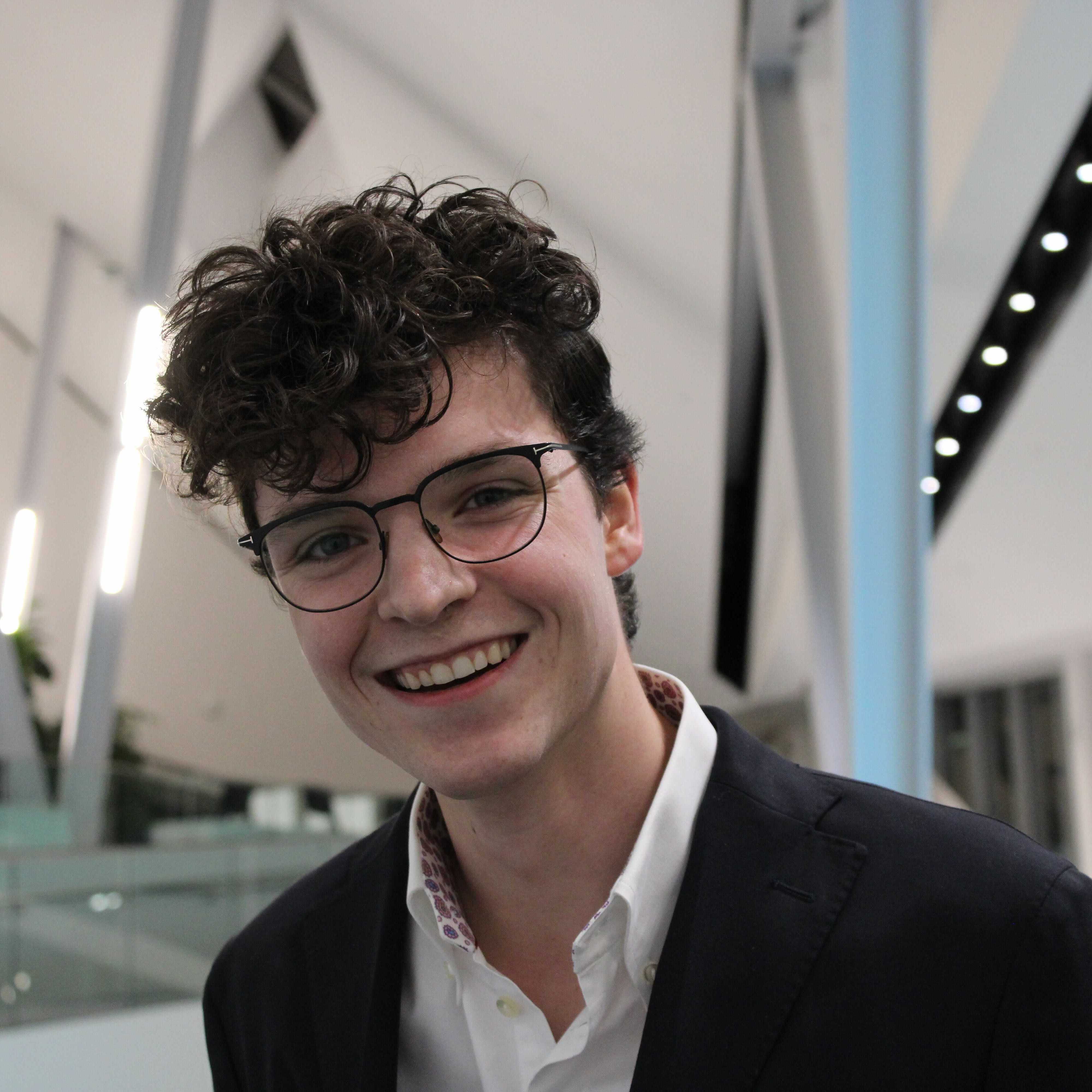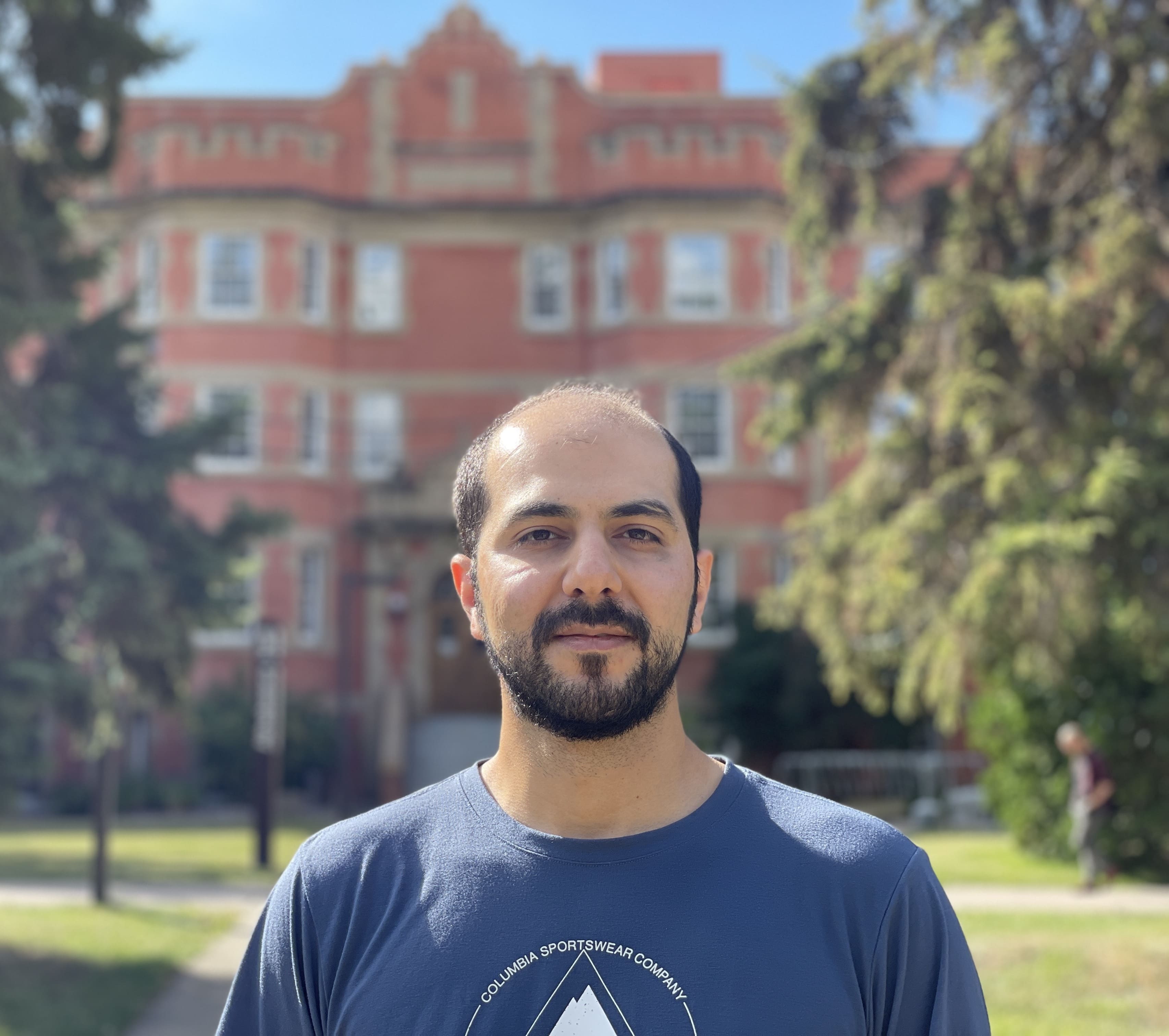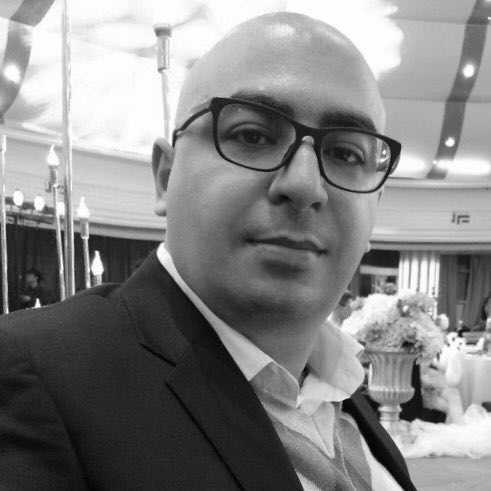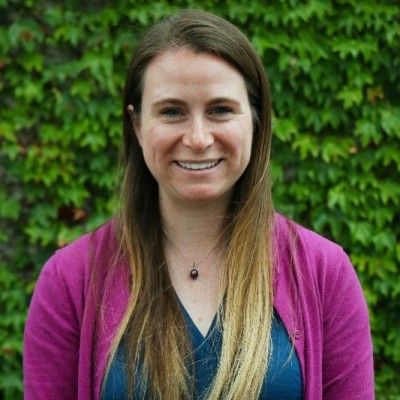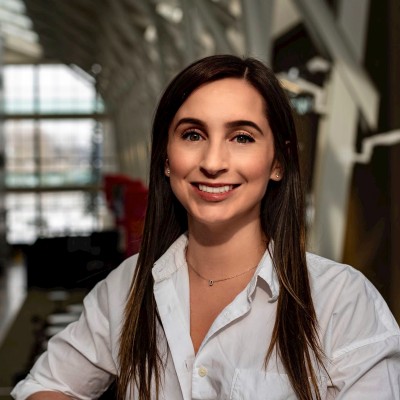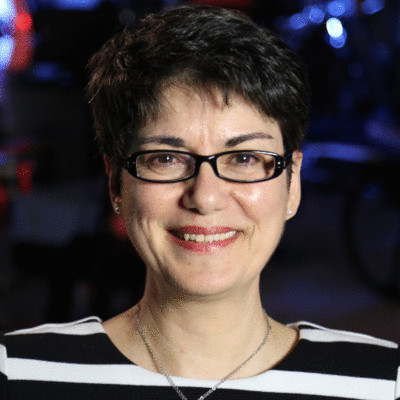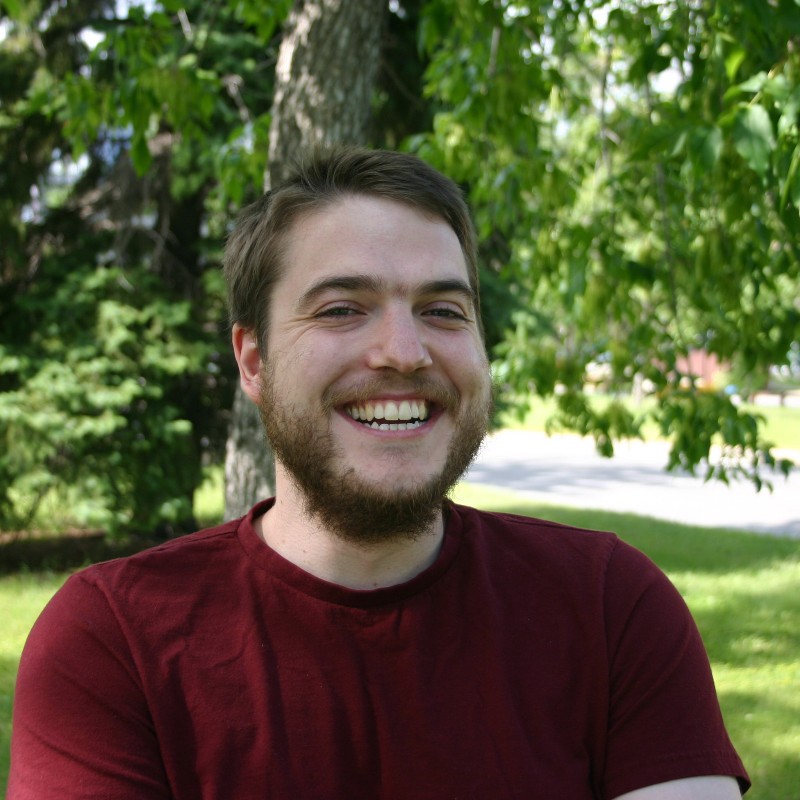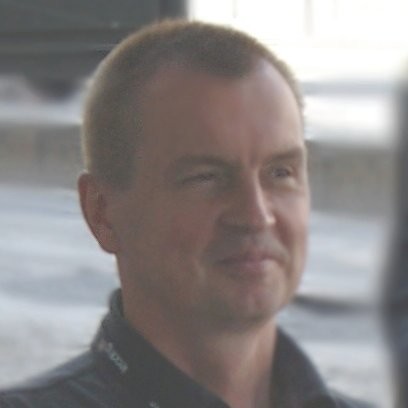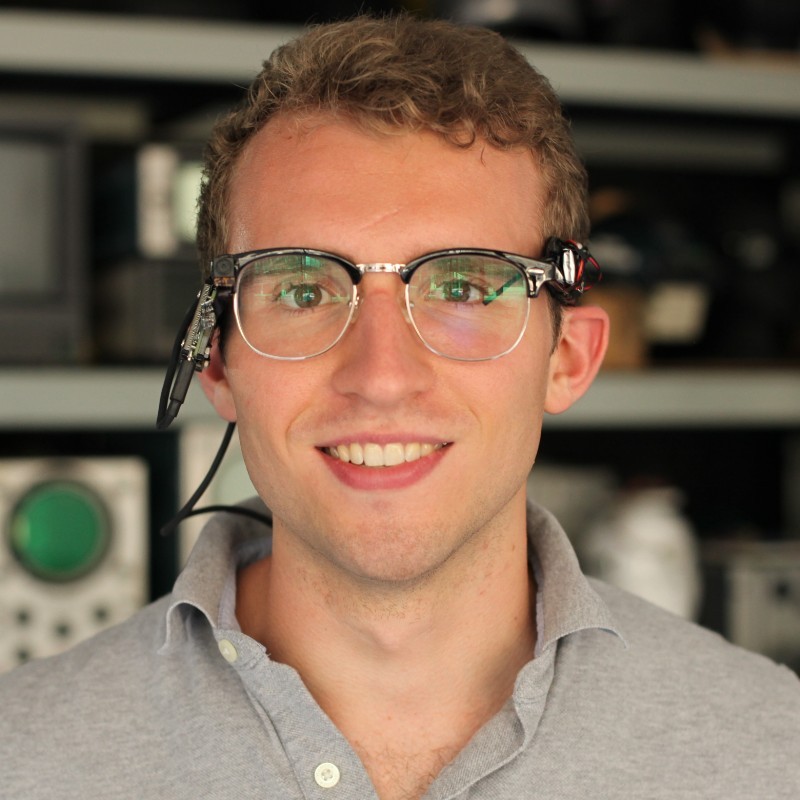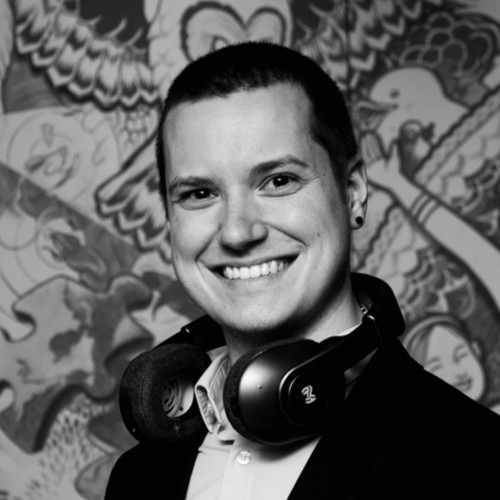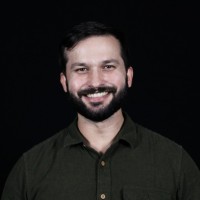natChat
A FREE virtual chat session hosted by NeurAlbertaTech. natChat:
Innovation in Neurotech is an accessible networking and speaker series
focused on neurotechnology where we invite leaders across the field who
will be presenting on their innovative solutions in the health sciences
and consumer domains. At this event you will have the chance to win some
exclusive NAT swag and more importantly, you will have the chance to
build your network and expand your professional reach.
Be sure to contact us
with any questions!
Jump to a chat: Past Chats
Upcoming Chats
Research Scientist at Kernel
With a PhD in Biomedical Engineering from Dartmouth,
Katherine's expertise is incredibly impressive.
Throughout her professional career Katherine
has built up extensive experience in research
and neuroscience study. Now at Kernel as a research
scientist, Katherine has worked on neuroimaging
system characterization, optimization, configuration,
and much more!
President of Kinkaide Enterprises Inc
With expertise in change management and a background in the biochemistry of memory and neurophysiology of attention, Perry has dedicated his career to promoting innovative, emerging, and advanced technologies that are fundamental to the development of Alberta's economy. Over the years, Perry has co-founded several technology alliances that advance cell therapy, cleantech, and fusion technology. He has also developed an index for monitoring Alberta's economic resilience, which has been instrumental in identifying areas of opportunity for economic growth. Perry's public webcasting network, which features Alberta innovations, has helped to showcase the latest developments in emerging technologies to a broader audience. At the onset of COVID, Perry founded Kinkaide Enterprises Inc. - an international network of over 25,000 participants. Through KEI, Perry continues to provide mentorship and financing for early-stage companies with industry disruptive technologies. Moreover, he serves as a change agent to educate and establish networks capitalizing on the impact of emerging technologies.
CEO and Founder Lenica Research Group
Simba Nyazika, a Psychology and Neuroscience graduate from the University of Alberta. Simba firmly believes in the importance of good mental health as a fundamental human right. With over seven years of clinical experience as a Behaviour Consultant, he has supported individuals of all ages struggling with diverse mental health challenges. Simba's passion for mental health has led to the creation of groundbreaking initiatives, including the world's first mobile virtual reality-based brain training program, Cognilit, and the successful development of RehabVR - a cognitive rehabilitation program to support stroke recovery, in partnership with the Glenrose Rehabilitation Hospital. As a co-founder of Lenica Research Group, Simba and his team are dedicated to creating a neurocognitive platform that has the potential to revolutionize mental health on a global scale.
Co-Founder of 8 Bit Cortex
Dr. Ty McKinney, a Psychology graduate from the University of Alberta. Dr. McKinney completed his Ph.D. at the University of Utah on brainwave technology in mental health assessment. He co-founded 8-Bit Cortex to adapt his research into gamifying corporate burnout risk assessments and improving workplace wellness for everyone. As the Research Director for Branch Out, Dr. McKinney promotes the impact of innovative brain health research and shares this insight with the community. When not thinking about the brain, Ty can be found exploring nature or connecting with Alberta's growing technology ecosystem.
Why Should You Attend?

We will be raffling off exciting prizes throughout the
chats, such as:
- NAT merch baskets (shirt, pen, mask, etc.)*
- NAT workshop subscription for any stream
* Physical prizes are only available to individuals who
attend in-person.

Building a network is important! One of the strongesst factors contributing to successful job applications is your network. If you think you want to pursue a career in neurotech, neuroscience, or tech, this is the place to build your network! We bring in as many great minds as we can find from all of the fields we are involved in, and this is your chance to meet them.
Past Chats
Are you a neurotech enthusiast interested in building your network and expanding your professional reach? NeurAlbertaTech invites you to join us for our speaker event, NAT Chat - Social Neuroscience - on Thursday, March 30th! Connect with leading industry professionals and academics, enjoy free food and beverages, and win prizes!
Assistant Professor of Psychology, University of Alberta
Dr. Kyle Nash is an Assistant Professor in the Psychology Department at the University of Alberta, and a former postdoctoral fellow at the University of Bern and the University of Basel in Switzerland. Dr. Nash received his PhD in Social Psychology, his Neuroscience graduate diploma from York University, and his BA (Hons) in Psychology from the University of Manitoba. Dr. Nash's research is grounded in the neuropsychology of motivation and conflict - investigating the basic neural, motivational, and affective mechanisms of personality and self-regulatory processes. He examines the nature of threat and defensive reactions to threat, individual differences in the affective experience of conflict and distress, and self-control in decision-making. Dr. Nash will provide an overview of neuroeconomics, investigating the brain mechanisms involved in social choices and economic decision-making.
Assistant Professor of Psychology, University of Alberta
Dr. Dana Hayward is an Assistant Professor of cognitive psychology at the University of Alberta, and a former postdoctoral fellow at Concordia University in Montréal, Québec. Dr. Hayward completed her PhD and MSc in Psychology at McGill University, BEd at York University, and her BSc in Human Behavioural Biology at the University of Toronto. She directs the Visual Attention and Social Processes lab. She employs eye-tracking, motion-tracking, and EEG technology to delineate the environmental influences (such as spatial layouts or the effect of other people) on attention, and also investigates individual variability. Dr. Hayward has won the best article of the year for the Canadian Journal of Experimental Psychology, and was an Early Career recipient from the APA. She received tri-council funding at the PhD, Post-doc and Assistant Professor stages of her career. Dr. Hayward will present an overview of past and current eye-tracking and motion-tracking lab studies.
CIFAR Artificial Intelligence Chair;
Associate Professor, Department of
Medicine, University of Alberta; Vice
Board Chair AMII
Dr. Patrick M. Pilarski is an Associate Professor in Physical Medicine and Rehabilitation at the University of Alberta and a Senior Staff Research Scientist and team lead at DeepMind's Alberta office. He is interested in reinforcement learning, decision making, and human-machine interaction, and leads the Amii Adaptive Prosthetics Program. He has also developed techniques for cancer and pathogen screening. Dr. Pilarski has authored over 100 peer-reviewed articles and received numerous research grants and awards.
PhD Candidate in Statistical Machine Learning
Gautham Vasan is a PhD student in Statistical Machine Learning at the University of Alberta, focusing on the intersection of Artificial Intelligence and Robotics. His research involves developing Reinforcement Learning algorithms and continual learning systems for real-world robots. Previously, he worked as a Machine Learning Researcher at Kindred Systems Inc, applying AI techniques for e-commerce fulfillment centers.
CIFAR Artificial Intelligence Chair;
Associate Professor, Department of
Medicine, University of Alberta; Vice
Board Chair AMII
Dr. Patrick M. Pilarski is a Canada CIFAR Artificial
Intelligence Chair, past Canada Research Chair
in Machine Intelligence for Rehabilitation, and
an Associate Professor in the Division of Physical
Medicine and Rehabilitation, Department of Medicine,
University of Alberta. In 2017, Dr. Pilarski
co-founded DeepMind's Alberta office, where he
continues as a team lead and Senior Staff Research
Scientist. He is a Fellow and Vice Board Chair
of the Alberta Machine Intelligence Institute
(Amii), co-leads the Bionic Limbs for Improved
Natural Control (BLINC) Laboratory, and is a
principal investigator with the Reinforcement
Learning and Artificial Intelligence Laboratory
(RLAI) at the University of Alberta. Dr. Pilarski
received the B.ASc. in Electrical Engineering
from the University of British Columbia in 2004,
the Ph.D. in Electrical and Computer Engineering
from the University of Alberta in 2009, and completed
his postdoctoral training in computing science
with Dr. Richard S. Sutton at the University
of Alberta. Dr. Pilarski's research interests
include reinforcement learning and decision making,
artificial intelligence, real-time machine learning,
human-machine interaction, intelligence amplification,
rehabilitation technology, and assistive robotics.
He leads the Amii Adaptive Prosthetics Program—an
interdisciplinary initiative focused on creating
intelligent artificial limbs to restore and extend
abilities for people with amputations. As part
of this research, Dr. Pilarski has developed
and made prominent machine learning techniques
for continual sensorimotor control and prediction
learning on prosthetic devices. These include
some of the first published approaches to ongoing
user training of upper-limb prosthesis control
systems via reinforcement learning, and he pioneered
the use of general value functions in prediction
learning to continually adapt myoelectric control
interfaces in real time. Dr. Pilarski's research
programme continues to explore human-device interaction
and communication, long-term co-adaptation and
joint action between agents, patient-specific
device optimization, and constructivism in tightly
coupled human-machine interfaces. He has also
created techniques for rapid cancer and pathogen
screening through work on biomedical pattern
recognition, robotic micro-manipulation of medical
samples, and hand-held diagnostic devices. Dr.
Pilarski is the award-winning author or co-author
of more than 100 peer-reviewed articles, a Senior
Member of the IEEE, and has been supported by
competitive provincial, national, and international
research grants.
PhD Candidate in Statistical Machine Learning
Gautham Vasan is a PhD student in Statistical
Machine Learning at the University of Alberta,
advised by Dr. Rupam Mahmood. Gautham is interested
in building machines with human-like intelligence.
His research lies in the overlapping areas of
Artificial Intelligence and Robotics. He actively
works on designing and developing Reinforcement
Learning (RL) algorithms and continual learning
systems for real-world robots. Previously, he
was a Machine Learning Researcher at Kindred
Systems Inc, leveraging AI techniques to identify
apparel items to pick, place and sort into complete
end-customer orders at e-commerce fulfilment
centres like Gap Inc, etc.
natChat:
Neurotech in Invasive Medicine
November 24, 2022
17:00-19:00mt
This event is 100% virtual
Neurosurgeon at Alberta Health Services
Dr. Tejas Sankar is a neurosurgeon, clinician-scientist,
and Associate Professor at the University of
Alberta. He holds a medical degree from McGill
University, completed his neurosurgical residency
training at the University of Alberta, and completed
his PhD at the University of Toronto. His principal
clinical interest is the neurosurgical management
of patients with Parkinson’s Disease, other movement
disorders, and psychiatric disorders using Deep
Brain Stimulation (DBS), and he is the surgical
lead for the DBS program. He also has strong
clinical interests in the treatment of patients
suffering from chronic pain and brain tumors.
Dr. Sankar currently also serves as Research
Director in the Division of Neurosurgery and
is the Principal Investigator for the Functional
Neurosurgery Research Laboratory at the University
of Alberta. The lab focuses on the use of multimodal
neuroimaging and neurophysiological techniques
in order to study the impact of brain stimulation
on plasticity in the nervous system, and to develop
biomarkers of treatment response across a wide
range of neurosurgical illnesses, with specific
emphasis on Parkinson's Disease and chronic pain.
Dr. Sankar has published over 65 peer-reviewed
scientific articles, written multiple invited
commentaries and book chapters, and has given
over 70 invited presentations. In addition, he
has received several research awards, including
the 2009 Journal of Neuro-Oncology award from
the American Association of Neurological Surgeons.
Dr. Sankar is currently an Associate Editor of
the Canadian Journal of Neurological Sciences
(CJNS), and serves as Vice President of the Canadian
Neurological Sciences Federation (CNSF).
Director of Manufacturing at Kheprion
Inc.
I am a Fifth-year Materials Engineering Student
here at the University of Alberta. I currently
work in the field of drug and medical device
development - specializing in manufacturing nanomaterials
for wound care, and targeted therapeutics with
an emphasis on women's health.
I have started and worked with numerous University
Spin-off corporations from the innovations we
created here at the University of Alberta and
with our partners across North America.
Neurosurgeon at Alberta Health Services
Dr. Tejas Sankar is a neurosurgeon, clinician-scientist,
and Associate Professor at the University of
Alberta. He holds a medical degree from McGill
University, completed his neurosurgical residency
training at the University of Alberta, and completed
his PhD at the University of Toronto. His principal
clinical interest is the neurosurgical management
of patients with Parkinson’s Disease, other movement
disorders, and psychiatric disorders using Deep
Brain Stimulation (DBS), and he is the surgical
lead for the DBS program. He also has strong
clinical interests in the treatment of patients
suffering from chronic pain and brain tumors.
Dr. Sankar currently also serves as Research
Director in the Division of Neurosurgery and
is the Principal Investigator for the Functional
Neurosurgery Research Laboratory at the University
of Alberta. The lab focuses on the use of multimodal
neuroimaging and neurophysiological techniques
in order to study the impact of brain stimulation
on plasticity in the nervous system, and to develop
biomarkers of treatment response across a wide
range of neurosurgical illnesses, with specific
emphasis on Parkinson's Disease and chronic pain.
Dr. Sankar has published over 65 peer-reviewed
scientific articles, written multiple invited
commentaries and book chapters, and has given
over 70 invited presentations. In addition, he
has received several research awards, including
the 2009 Journal of Neuro-Oncology award from
the American Association of Neurological Surgeons.
Dr. Sankar is currently an Associate Editor of
the Canadian Journal of Neurological Sciences
(CJNS), and serves as Vice President of the Canadian
Neurological Sciences Federation (CNSF).
Director of Manufacturing at Kheprion
Inc.
I am a Fifth-year Materials Engineering Student
here at the University of Alberta. I currently
work in the field of drug and medical device
development - specializing in manufacturing nanomaterials
for wound care, and targeted therapeutics with
an emphasis on women's health.
I have started and worked with numerous University
Spin-off corporations from the innovations we
created here at the University of Alberta and
with our partners across North America.
Mechanical and Biomedical Engineer at
University of Alberta
Milad began his educational journey at Iran University
of Science and Technology where he spent six
years studying Mechanical Engineering, and another
two years as a Researcher. More recently Milad
completed his PhD in Mechanical Engineering at
the University of Alberta in 2020, where he has
served as a Research and Teaching Assistant since
2016. Currently Dr. Nazarahari is working in
a lab which researches the potential of neuroprostheses
for controlling balance in those with physical
disabilities.
Postdoctoral Fellow at University of
Alberta
My primary research interests lie in developing
machine / deep / reinforcement learning for solving
real-world big and complex problems. Specifically,
I am now working on the intersection of machine
learning and computational neuroscience, where
I am creating different techniques for decoding
patterns of the human brain by exploiting distinctive
biomarkers, i.e., fMRI, EEG, MEG, Health Records,
etc.
Mechanical and Biomedical Engineer at
University of Alberta
Milad began his educational journey at Iran University
of Science and Technology where he spent six
years studying Mechanical Engineering, and another
two years as a Researcher. More recently Milad
completed his PhD in Mechanical Engineering at
the University of Alberta in 2020, where he has
served as a Research and Teaching Assistant since
2016. Currently Dr. Nazarahari is working in
a lab which researches the potential of neuroprostheses
for controlling balance in those with physical
disabilities.
Postdoctoral Fellow at University of
Alberta
My primary research interests lie in developing
machine / deep / reinforcement learning for solving
real-world big and complex problems. Specifically,
I am now working on the intersection of machine
learning and computational neuroscience, where
I am creating different techniques for decoding
patterns of the human brain by exploiting distinctive
biomarkers, i.e., fMRI, EEG, MEG, Health Records,
etc.
Research Scientist at Kernel
With a PhD in Biomedical Engineering from Dartmouth,
Katherine's expertise is incredibly impressive.
Throughout her professional career Katherine
has built up extensive experience in research
and neuroscience study. Now at Kernel as a research
scientist, Katherine has worked on neuroimaging
system characterization, optimization, configuration,
and much more!
Research Scientist at Kernel
I specialize in making human brain imaging methods
more robust and useful. My training is in Biomedical
Engineering and Cognitive Neuroscience. I use
signal processing methods and experimental expertise
to get the most information from the smallest
amount of brain data.
Principal Experimental Psychologist at
Valve
I'm an experimental psychologist at Valve who
works on applying knowledge and methodologies
from psychology to game design. I do a fair bit
of statistical analysis on gameplay and Steam
data, and these days I'm spending time on Brain-Computer
Interface research. I've been at Valve since
2008 and have worked on basically every game/product
we've released since then.
Research Scientist at Kernel
With a PhD in Biomedical Engineering from Dartmouth,
Katherine's expertise is incredibly impressive.
Throughout her professional career Katherine
has built up extensive experience in research
and neuroscience study. Now at Kernel as a research
scientist, Katherine has worked on neuroimaging
system characterization, optimization, configuration,
and much more!
Throughout her career, Vivian has contributed an incredible amount to the medical neurotech industry, including Founding or Co-Founding several innovative companies. Vivian now sits as the Canadian Research Chair in Functional Restoration at the University of Alberta as well as serving as a Professor of Physical Medicine and Rehabilitation.
Co-Founder | Upside Down Labs
With an eye for detail and passion for design
Bhawna has built up an extensive graphic design
background. More recently, she Co-Founded Upside
Down Labs, a technology development firm that
is currently working on open-source projects
in the bioelectronics and neuroscience spaces.
Research Scientist at Kernel
I specialize in making human brain imaging methods
more robust and useful. My training is in Biomedical
Engineering and Cognitive Neuroscience. I use
signal processing methods and experimental expertise
to get the most information from the smallest
amount of brain data.
PhD Candidate, Neuroscience - NATuc
President
I am an aspiring Neurotechnology Professional
with a passion for health, life sciences research
and technology, and travel. I bring a proven
record of achievement in medical science education,
community involvement, business development,
and leadership. I have travelled to over 35 countries
on six different continents and can speak three
languages. With a global mindset and graduate
education in the fields of neuroscience and biomedical
technology, I will strive to achieve my goals
of improving the world's quality of life and
improving human health.
Co-Founder | Upside Down Labs
Bhawna Sehgal is a goal-oriented Visual Designer
with an eye for detail and a passion for designing.
She believes in creating eye-appealing visual
concepts and communicating ideas that inspire,
inform and captivate people. Her love for designing
and creative thinking pushes her to always keep
creating something new that can excite the viewers.
Principal Experimental Psychologist at
Valve
I'm an experimental psychologist at Valve who
works on applying knowledge and methodologies
from psychology to game design. I do a fair bit
of statistical analysis on gameplay and Steam
data, and these days I'm spending time on Brain-Computer
Interface research. I've been at Valve since
2008 and have worked on basically every game/product
we've released since then.
Postdoctoral Researcher at University
of Calgary
Experienced postdoctoral researcher focused on
driving forward design, development and realization
of pediatric brain-computer interfaces (BCI).
Skills include biomedical signal processing,
multi-way analysis, machine learning, EEG acquisition
and analysis, BCI gamification and design.
Co-Founder at 8 Bit Cortex
Ty is currently completing his PhD at the University
of Utah with a research focus on brain health
assessment. Ty is thrilled to be co-founder of
8 Bit Cortex, a mental health tech start up,
and adapt his research expertise to creating
accessible and affordable mental health services.
Ty is also the Research Director for Branch Out
Neurological Foundation, a non-profit that accelerates
non-pharmaceutical and tech-based solutions to
neurological and mental health disorders. Finally,
Ty is also a consultant with ConsciousWorks to
promote brain health in the workplace. Through
these positions, Ty has cultivated project management,
research, science communication, programming
skills (In order of skill: R, Matlab, HTML, CSS,
Javascript, Python), and entrepreneurial thinking
with an eye for the clinical impact.
With over 100 publications, decades of cutting-edge research at esteemed institutions, and a multitude of coveted awards, Dr. Lebedev has investigated all levels of brain function from cellular to cortical, with a focus on somatosensory and motor cortices. He has developed bi-directional BCIs that simultaneously read brain activity and deliver sensory information. Mikhail is currently Scientific Head of the Center for Bioelectrical Interfaces, part of the Institute of Cognitive Neuroscience at HSE in Moscow.
Andreas is Founder and CEO of Cognixion where he is providing the hundreds of millions of people with communication disabilities a way to express their voice. Cognixion creates natural interfaces powered by AI to facilitate and improve communication. In addition to Speakprose, a mobile app that uses gestures and eye-tracking to build sentences, the team is developing an entirely wireless BCI with integrated AR.
Cayden helps people upgrade their thinking by creating wearable BCIs and is currently the BCI Lead at Blueberry. Blueberry is building BCI glasses that allow continuous brain state monitoring to help users make better work, break, and rest decisions, overall increasing productivity and satisfaction.
Coming from a Political Science degree at Columbia University, Joseph has honed his marketing and communication skills at companies across the globe including Salesforce, AppNexus, and WPP. Joseph previously managed digital marketing for OpenBCI and now directs OpenBCI's commercialization and communication strategies.
Scientific Head at National Research
University — Higher School of Economics
Mikhail works in the fields of Neurophysiology
and Brain-Computer Interfaces. He has more than
100 publications. He has a MS degree in Physics
from Moscow Institute of Physics and Technology
(1986) and a PhD degree in Neurobiology from
the University of Tennessee, Memphis. In 1986-1991,
Lebedev conducted research on motor control in
Victor Gurfinkel's laboratory at the Institute
for Problems of Information Transmission. In
1991-1995, during his stay in Memphis, he investigated
single-unit activity in the somatosensory cortex
and basal ganglia of awake, behaving primates.
In 1995-1995, Lebedev conducted research at SISSA,
Trieste, Italy, where he examined plasticity
in rat somatosensory cortex. In 1997-2002, Lebedev
worked at NIMH, Bethesda, Maryland.
Founder and CEO of Cognixion
Cognixion has been internationally recognized
for its innovation and use of exponential technologies
to solve a social and healthcare global challenge
- affecting the lives of 509 million people*
affected by speech disabilities. Cognixion has
won the prestigious Roddenberry Prize, the Gold
Edison Award for Social Impact, the Global Elevate
Award and the Singularity University Global Grand
Challenge for Education for its potential to
impact over a billion lives.
Director Of Marketing & Business
Development at OpenBCI
Drawing on experience in sales, marketing, and
consulting, Joseph is responsible for guiding
OpenBCI's commercialization and communication
strategies. Prior to joining OpenBCI full-time,
Joseph managed OpenBCI's digital marketing as
a consultant while working in the US and EMEA
at market-leading companies such as Salesforce,
AppNexus, and WPP. After returning from living
in London, Joseph also briefly coordinated a
series of innovative art and music events in
NYC. He has a B.A. in Political Science from
Columbia University.
Interested in helping further our goals of demystifying neurotechnology and fostering future innovators? Your partnership makes this whole event possible and helps us push the bleeding edge of neurotech. Please contact us if you would be interested in recieving a copy of our sponsorship document and learning more about the long list of benefits we offer.
















